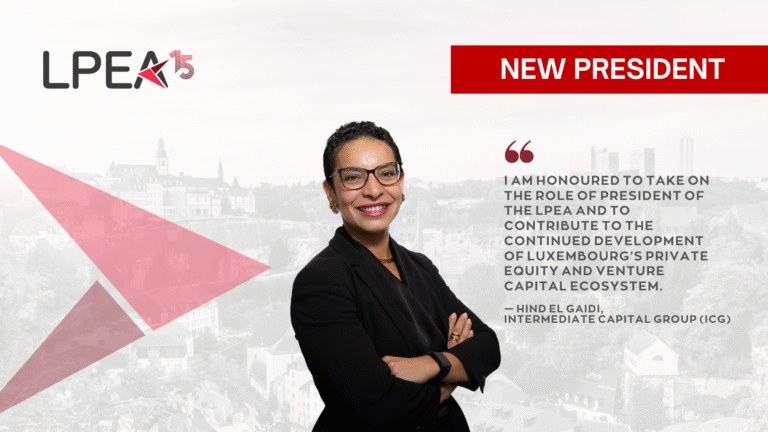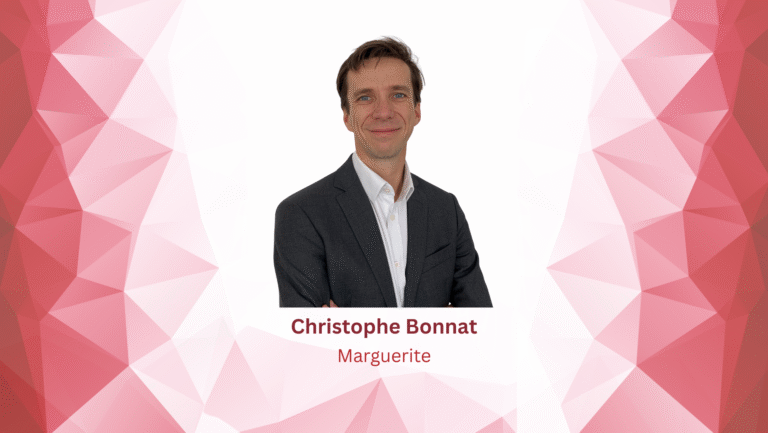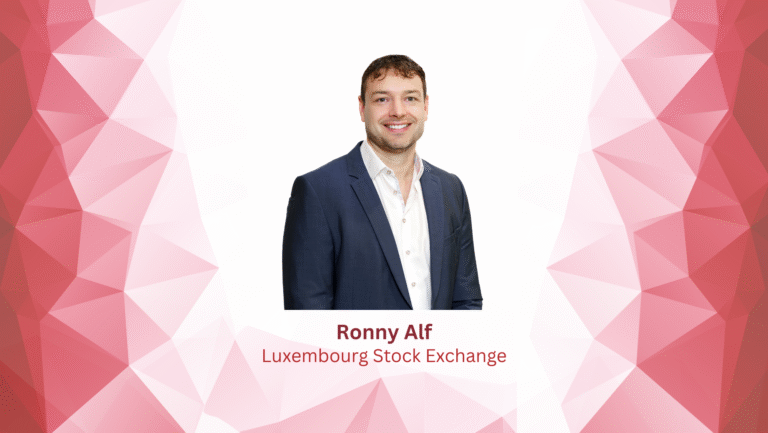BÉNÉDICTE DE TISSOT, CFO, AND JEAN-MARC FIAMMA, PRIVATE DEBT PARTNER SAY THAT “LUXEMBOURG HAS BEEN THE RIGHT CHOICE FOR CAPZA”.
AN INTERVIEW BY LAURENT CAPOLAGHI / Member of the LPEA’s Executive Committee
Laurent: Bénédicte, Jean-Marc, we are very happy to have you both here to speak about CAPZA. Can you please introduce CAPZA?
Bénédicte: Sure. CAPZA, previously known as “Capzanine”, was created in Paris in 2004 with one core strategy in mind: namely to provide equity and mezzanine capital to small & mid cap companies. At that point of time, private debt was mainly covered by mezzanine financing. We saw the need of these companies for flexible capital and we replied to that need. In this respect, we were clearly a pioneer for private debt in the French market. We pursued our strategy along three fund generations and the performance achieved proved us to be on the right track.
Jean-Marc: By 2017, we saw a growing demand for uni-tranche financings from the market. We reacted to this new demand and launched two separate offerings with the 4th generation: CAPZA 4 Flex Equity, dedicated to equity and mezzanine financing of small cap companies and CAPZA 4 Private Debt, dedicated to private debt for the mid cap market. This marked a new era of development of capital financing and strategy for CAPZA. Today, CAPZA offers a platform of six complementary areas of expertise: Flex Equity, Private Debt, Transition, Artemid Senior Loans, Capza Expansion and Capza Growth Tech and manages 4.7 billion €.
Laurent: You started to stronger differentiate between equity/ mezzanine and private debt. How did these two strategies evolve?
Jean-Marc: It was important to us to keep the two strategies apart and avoid any conflict of interest. For CAPZA Flex Equity, we target companies with a defined range of 2 – 10 million € EBITDA and a clear cut at 10 million €. The CAPZA Private Debt fund targets a different segment with companies of an EBITDA range between 10 – 50 million €. Currently, we are about to complete the fundraising of the 5th generation of these vehicles: we are on track to reach soon our 1.5 billion € target for CAPZA 5 Private Debt. CAPZA 4 Flex Equity closed at 450 million € and we are targeting 500 million € for the next generation.
Laurent: Congratulations to these achievements and such a strong track record. Let’s speak about CAPZA 5, that you are just fundraising for.
Bénédicte: We just reached a successful first closing in July 2020 for CAPZA 5 Flex Equity at 450 million €. CAPZA 5 Flex Equity is a French vehicle. CAPZA 5 Private Debt has been launched in Luxembourg.
Jean-Marc: Indeed, CAPZA 5 Private Debt is our first Luxembourg vehicle and we very much look forward to expanding our operations into Luxembourg.
ALONGSIDE OUR INTERNATIONALIZATION, HOWEVER, WE STARTED TO LOOK FOR A
EUROPEAN PLATFORM THAT ALLOWS EFFICIENT CROSS BORDER DISTRIBUTION
AND REACH TO INTERNATIONAL INVESTORS. THE PREFERENCE OF OUR
INTERNATIONAL AND INSTITUTIONAL INVESTORS FOR LUXEMBOURG CLEARLY
PLAYED AN IMPORTANT ROLE IN OUR DECISION PROCESS.
Bénédicte de Tissot
Laurent: Why did you decide to come to Luxembourg?
Bénédicte: Alongside the increase of assets under management that CAPZA has seen in the last years and that we just spoke about, we experienced an increased exposure in Europe and around the globe. Before 2015, CAPZA used to be active exclusively in the French market, while over the past five years our activities, our investments as well as our investors became more international. In order to support our international expansion strategy, further to Paris, CAPZA has opened offices across Europe: Madrid in 2015, Munich in 2017 and Milan in 2018. Our investments are spread over Europe and the globe and so are our investors. We particularly serve more institutional investors than we did in the past and these investors look at Luxembourg as a “must jurisdiction” for their requirements.
Laurent: Would you say that your decision for Luxembourg has has been mainly driven by your Limited Partners?
Bénédicte: CAPZA’s origin is French and for several years we exclusively operated in the French market. Today, our presence continues to be very strong in France. Alongside our internationalization, however, we started to look for a European platform that allows efficient cross border distribution and reach to international investors. The preference of our international and institutional investors for Luxembourg clearly played an important role in our decision process.
Jean-Marc: Luxembourg has been the right choice for us. CAPZA 5 Private Debt is a RAIF vehicle and provides both speed to market and structuring flexibility.
DURING THE LIFE OF THE INVESTMENT, WE PERFORM
AN ANNUAL ESG REVIEW WITH DETAILED CRITERIA.
Jean-Marc Fiamma
Laurent: Talking about investments, what sectors are you focusing on?
Jean-Marc: CAPZA is a generalist but over the years we have built up strong expertise in supporting companies in the health, technology and BtoB services sectors. Healthcare and technology make around 55% of our total portfolio. Different to what you might think, this strong focus on healthcare and IT has been applicable in our portfolio for the last 5 years. It has not been a reaction to Covid-19 but certainly we see strong performances in these sectors following the pandemic.
Laurent: Would you share with us one of your success stories and illustrate what was the key to this success?
Jean-Marc: Questel can be clearly mentioned as one example of a very successful investment. Questel today is one of the world’s largest intellectual property software and service providers. CAPZA invested into Questel for the first time in 2015 as a shareholder. It was our ambition to accelerate the international expansion of the company and to complete several build-ups, particularly in the US market. We entered in 2015 when the company was generating an EBITDA of only 5.5 million €. Three years later we sold to IK at an EBITDA value of 18 million €. Soon afterwards, we came back and provided a 170 million € private debt tranche to Questel. Thanks to this financing tranche the company has been able to complete several build-ups across the US, Germany and Japan. Recently, Questel was sold to an international consortium of investors, generating an EBITDA of 44 million €. We expect to be part of financing this new transaction whose value is estimated to be at 450 million €. The key to success? Certainly, a strong partnership with the company over a long period.
Laurent: Which role plays ESG at CAPZA?
Jean-Marc: CAPZA provides capital to companies and as such we are in a position to influence ESG in our portfolio companies. This position brings responsibility and we take that responsibility very serious. Before the investment process, we perform in-depth ESG due diligence. We can decline an investment if we do not consider it to be fully ESG -compliant and e.g. we recently declined an investment in a company
engaged in medical tests on live animals. Second, during the life of the investment, we perform an annual ESG review with detailed criteria. Our objective is to have the same quality of information whether we are in Private Equity or in private debt.
Bénédicte: If we want to make an impact with our portfolio companies and challenge them on ESG topics, it is pretty obvious that we have to apply the same principles to CAPZA. Until 2019, we had a number of different initiatives going on but they were not really coordinated at the company level. We decided last year to gather all those activities into an overall approach, which we called CAPZA for Good. The first thing we did was to perform the same type of ESG analysis on our own company as we do on our investments, and identify the areas that we need to focus on. We wrote our own corporate social responsibility charter and we have already identified several areas that we intend to prioritise, including happiness at work, diversity, carbon footprint and waste management. In all of these areas we now have a number of initiatives up and running. ESG is something that you need to live every day and it is our ambition to do so!




